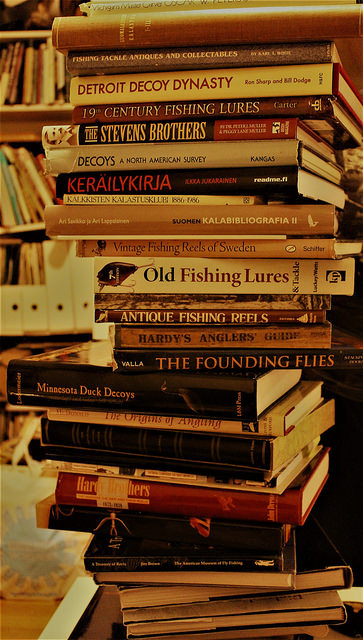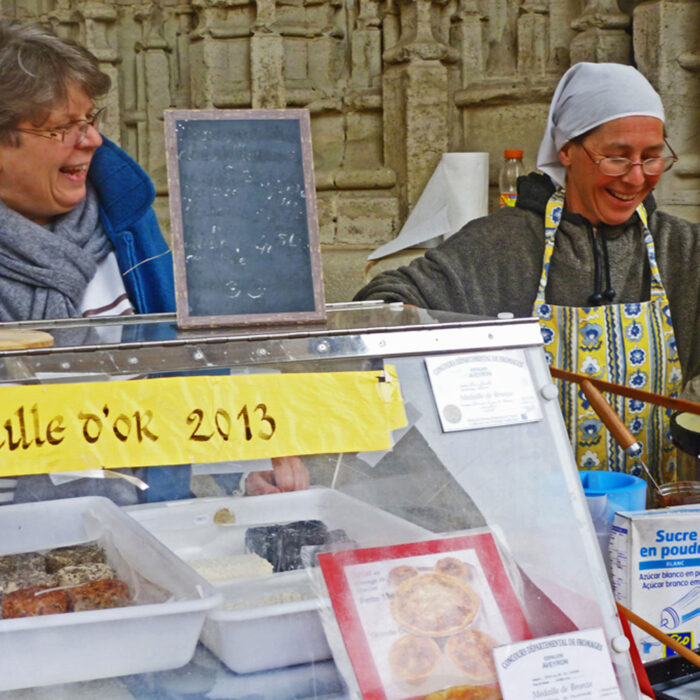You have no items in your cart. Want to get some nice things?
Go shopping
If you’re still, very still, it’s almost as though you can hear Hemingway uttering a gruffly-voiced, predictably succinct observation or two. Remaining further still, echoes and whispers of James Joyce and the store’s owner in its original avatar, Sylvia Beach, abound as they discuss the ramifications of publishing Joyce’s seminal classic, Ulysses. Moving across a generation, surely those wisps of smoke resemble Allen Ginsberg and William S. Burroughs sparring over portions of Naked Lunch? The moniker of ‘world’s most famous independent bookstore’ sits rather perfectly on Shakespeare & Company’s rickety old head, and it’s not hard to see why.
As I walk towards the store, the Seine barely a whisper away to my left, the towering Place Saint-Michel a scream away, and Notre Dame framed in early winter silence just across the bridge, it’s impossible to keep history at bay. This is after all the same bookstore that claims lineage to the ‘Lost Generation’ of Ezra Pound, Ernest Hemingway, Gertrude Stein and Fitzgerald of the 1920s, the same address that then welcomed the angst-ridden ‘Beat Generation’ of Burroughs, Ginsberg and Corso, and one that today is the very heart and soul of Paris’ bohemian Latin Quarter. It could prove overwhelming, if it all weren’t so charming.
From its origins on 12 rue de l’Odéon to its current, cemented incarnation on 37 rue de la Bûcherie, from Sylvia Beach to the much-loved yet equally irascible American ex-serviceman George Whitman who created the existing Shakespeare & Company, a wild sense of rebellion has always been central to the bookstore’s ethic. I sense it as I come across the green and yellow visage of its unkempt facade. I imbibe it as I read Whitman’s manifesto behind starting this “socialist utopia masquerading as a bookstore”, scrawled lazily in uneven white chalk. And I wade through it as I enter and find myself in the throes of books – rarities, originals, classics, and mostly, secondhand selections – packed, quite literally, to the ceiling.
The Lost and Beat Generations feature most heavily on the bookshelves, naturally so. They own (relatively) large spaces to themselves, no less. Poetry and Romanticism find equal favour, as do French authors in English and Modern Classics. Ladders lie in wait for those wishing to extend their literary reach, as a few awkward steps lead upstairs to the ‘Old Smoky’ Reading Room where you could quite happily while away an entire day with a rug to your disposal. Other tiny nuggets in this Pandora’s Box of whimsy and discovery include the ‘Blue Oyster’ Tearoom, the tiniest of office spaces, and a decidedly Parisian roof casually peopled by a rather stoic looking Shakespeare.
Despite the swarm of tourists, despite the curious onlookers with not the faintest interest in literature, despite an oddly majority-British staff who sometimes seem too consumed by their own supposed importance, there is a deep sense of romance to this place. The foraged flooring causes you to stumble across the hole-in-the-wall ‘Wishing Well’, framed by mosaicked marble tiling Whitman is believed to have stolen from Montparnasse Cemetery a lifetime ago. The walls, stairs and doorways lie littered with epigrams, like the haunting ‘Be not inhospitable to strangers lest they be angels in disguise’. As serendipity would have it, just as I’m done reading this classic, I bump into Sylvia Whitman. George’s daughter, Sylvia took over Shakespeare upon her father’s bequest in 2006 and has been steering it in myriad directions ever since. She appears as though she’s stepped out of an old Hollywood portrait frozen in time, all elegance and haloed charm. She’s only too happy to have a chat and I’m only too happy to have my curiosities sated.
I ask her whether she’s ever weighed down by the sense of history and the legacy that Shakespeare’s carries. “No,” is her simple reply “It’s only a blessing to have this sort of heritage, all these stories, and all these characters around you every day. I could never get burdened by it.” And does she have a particular favourite memory of her father and the bookstore? “Oh yes,” comes the answer, her eyes a-sparkle. “I remember him taking me with him as he would open the store bright and early every morning… though I was only a little girl, I still remember the sense of joy on his face as he did that each day… the joy of literature and stories most certainly, but also the joy of not knowing what special thing was going to happen that day.”
Under Sylvia, Shakespeare & Co. has extended its cultural collateral by boldly engaging the digital age (something her father might well have scoffed at) and by introducing sponsored events, book launches, writer-in-residency programmes, the Sunday ‘Mad Hatter’s Tea Party’, poetry readings, and the like into its fold. The new entrants notwithstanding, Shakespeare & Company still holds on to its old eccentricities. The ‘Tumbleweeds’ – those aspiring writers allowed to bunk at Shakespeare’s for a few nights, squeezing themselves in between its tiny aisles and its scattered benches in exchange for help around the store – remain an eternal fixture. As do echoes of a forgotten Le Procope, the neighbourly café immortalised by the likes of Voltaire and Verlaine.
Sylvia tells me that they’re in the throes of reopening the café next door. She tells me plans are in full swing to open a room only for children’s books. We chat some more. I ask her whether the Latin Quarter, still free-spirited yes but increasingly vulnerable to the ugliness and formulaic nature of gentrification, has begun to wear on her very English soul. I ask her whether Paris itself has lost its magic for her. “It has gotten too formulaic in places,” she concurs. “But this is Paris and when you’re here right by the Seine, magic’s never too far away.”
I step back outside, a few purchases in hand. Sylvia’s grace and her words linger with me. As I sit on a tilting bench that frequents Shakespeare’s cobbled porch, the store’s early 17th-century building and its weatherworn, al fresco bookstalls peer at me with curiosity. I’m struck by Shakespeare & Company’s enduring relevance to Paris’ lasting love affair with literature. I feel as though I’m in a time-warp – a space where Hemingway’s A Moveable Feast, stories of Le Mistral, secrets of a quieter, forgotten Paris, the voices of Henry Miller and Anaïs Nin, those first fleeting frames of Before Sunset, Shakespeare’s Antiquarian annex, and its ornate 19th-century drinking fountain have all merged into one inescapable dream. This is Paris, I remind myself. And magic’s never too far away.

About Siddharth Dasgupta
Siddharth Dasgupta is an Indian poet and novelist. His first novel, Letters from an Indian Summer, has met with consistent critical acclaim since its release in late 2014. His literature has appeared in Cha, Sunstruck, Coldnoon, Burning House, and Kitaab, amongst others; his travel stories meanwhile dot the likes of Travel + Leisure, Conde Nast Traveller, Eat Stay Love, Harper's Bazaar, and Just Luxe. This year sees the release of a Short-Story Collection in the Indian Subcontinent and Southeast Asia, to begin with (to be duly offered up elsewhere to the first publisher who plies him with martinis). A wild hybrid of poetry is also in the works. On any given day, Siddharth can be found chasing after the fleeting gravity of words and the poetic resonance of wild hearts, both of which have proven to be the best of confidantes.




